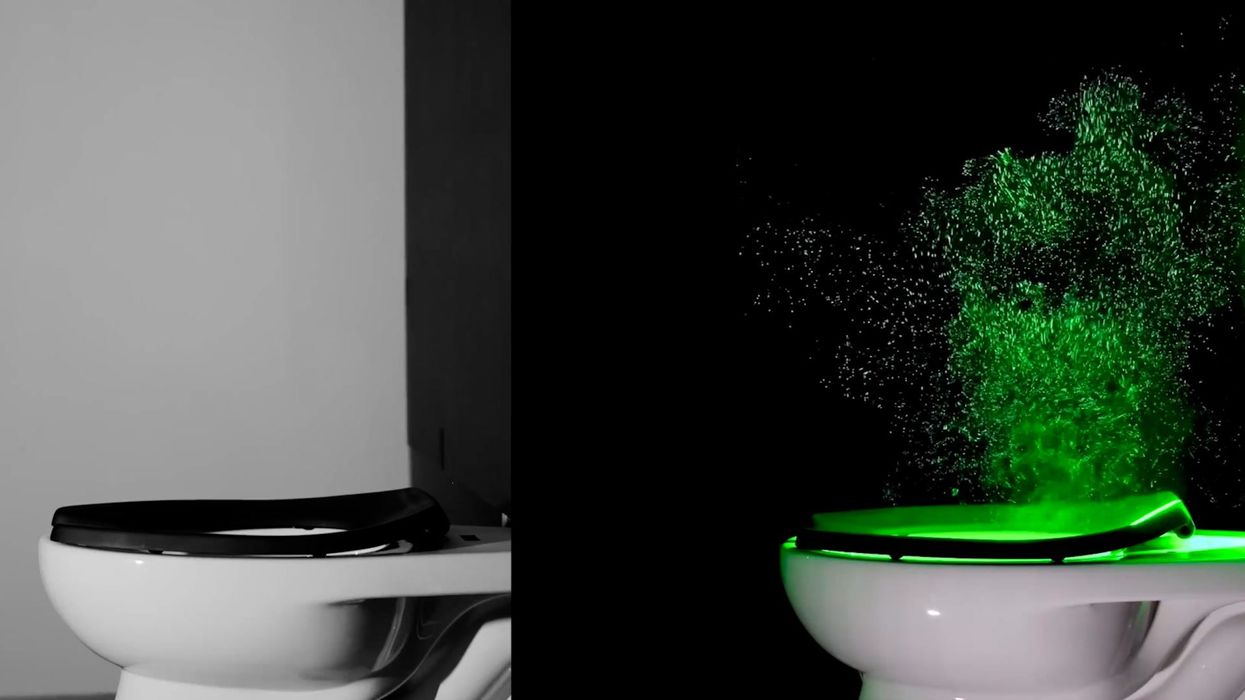Becca Monaghan
Mar 17, 2023
Video shows how far germs travel when flushing toilet
content.jwplatform.com
With spring cleaning season approaching, it might be worth paying extra attention to your bed after it was revealed to be a breeding ground for bacteria.
Microbiologist Jason Tetro, popularly known as the Germ Guy online, revealed that millions of germs grow on our bed sheets.
In an experiment, people were asked to use bed sheets for four weeks. The end result was then closely examined which determined a month-old bed sheet contains 10 million bacteria.
This is not only six times more the number lurking on a toothbrush stand, but also results revealed bed sheet bacteria that didn't even exist in our toilets.
Our pillows are even dirtier with 12 million bacteria due to the build-up of dead skin cells and sweat.
Sign up for our free Indy100 weekly newsletter
Our beds continue to be one of the forgotten places to clean. An average person spends around 2920 hours a year on their mattress, but it's often overlooked on the cleaning to-do list.
"You should wash or steam clean your mattress at least every 6 months," cleaning experts Karcher recommend. "By deep cleaning the mattress every so often, mattress foam will be aired out hence allowing all particles of the materials to 'breathe.' This way, you can also prolong the longevity of your mattress as well."
"Many of us invest a great deal of money on a mattress that guarantees a good night's sleep, it will not be ideal if we have to change it every so often. To avoid this from happening, you simply just have to know how to clean a mattress in the right way and with the right tool."
Getting rid of dust mites is easy, simply use the smaller vacuum attachment to get into all of the hard-to-reach places.
If you want to go the extra mile, you can always steam the mattress using a steam cleaner. The high temperature immediately kills dust mites and their eggs without the need for any chemicals.
However, steam cleaners are not recommended for protein stains such as blood or vomit as it can force the stain to settle. Instead, simply mix laundry detergent with water and dab it with a dry, clean cloth.
"Alternatively, you can also use hydrogen peroxide," Karcher suggests. "The key point is to dap on stains and not wipe or rub the stains. Otherwise, it can make matters worse."
Have your say in our news democracy. Click the upvote icon at the top of the page to help raise this article through the indy100 rankings.
Top 100
The Conversation (0)














